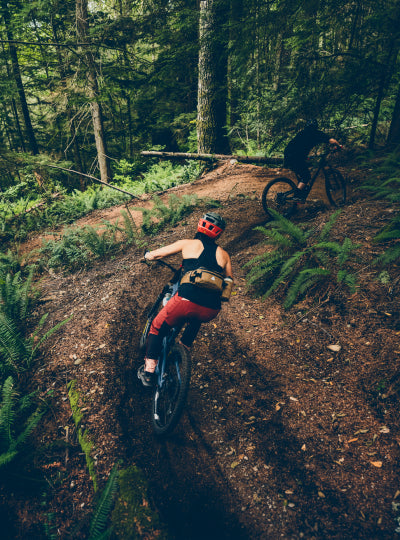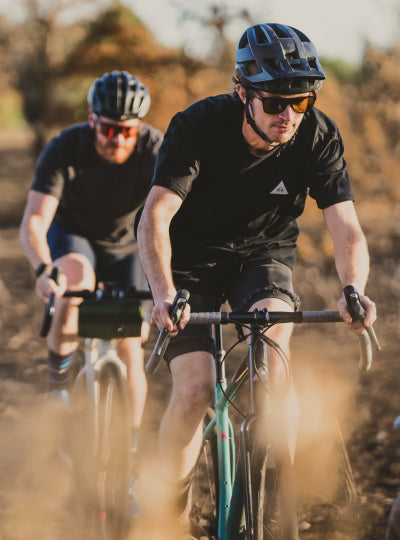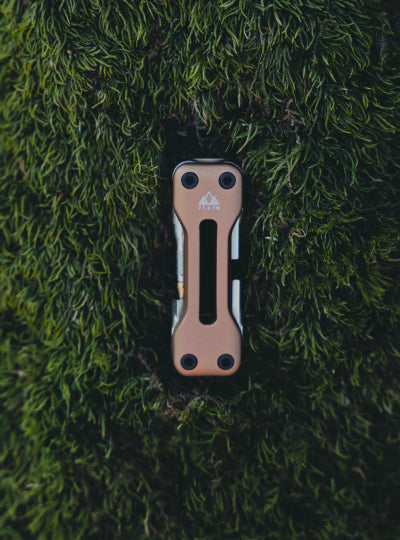Bikepacking Review: The Coast Dropper Post
The Coast Dropper Post is here because the Earth isn't smooth. It's roads and gravel trails are littered with potholes, water bars and various obstacles that want to bounce you off your saddle. The Coast's 40mm of tunable air suspension can help minimize their impact on your ride, making you more comfortable along the way. The team at Bikepacking.com set out to see how the Coast's suspension could improve their adventures and commutes and the results are in.
Bikepacking Review: The Coast Dropper Post
Last summer, Seattle-based PNW Components released a suspension-equipped dropper seatpost that—as far as we know—was the first air-sprung suspension dropper post on the market. The PNW Coast Suspension Dropper combines the ride-smoothing benefits of a suspension seatpost with the shred-friendly versatility of a dropper. Given the mass adoption of dropper posts, as well as the appeal of suspension seatpost to bikepackers, bike tourers, commuters, and gravel cyclists, we think it’s quite an intriguing combination. After all, “Mountain paths are enticing and potholes exist no matter how much we swear at them,” as PNW puts it. I mounted the Coast on my Kona Sutra LTD to train for our trip to Colombia and put several hundred miles on it prior to writing this review.
Since sustaining a serious back injury a couple of years ago, I’ve been experimenting with suspension seatposts to smooth out the bumps during long days bikepacking. However, I’m also a dropper post addict—if you’re a fellow aficionado, you know all about being hooked on the ability to get your saddle down and out of the way during descents. PNW claims the new Coast suspension dropper post results in up to 80% more fun, but then goes on to explain that “this study wasn’t scientific.” I can get behind those findings, though.

As a Suspension Seatpost
Unlike Cane Creek’s Thudbuster—probably the best known suspension seatpost on the market—the PNW Coast provides 40mm of travel via an internal air spring. The firmness of the cushion is tunable by way of an air valve located at the top of the post just under the saddle clamp. You can pressurize it based on your weight and general preference. PNW’s lowest recommended pressure is 200 and 300 is the highest.
I left the pressure as it was set up from PNW for most of the time, which was around 190 PSI. At 170 pounds, it seemed pretty spot on for me and my hip pack with a camera. I didn’t notice the suspension immediately on my first ride, and it even felt slightly odd. Instead of compressing a little when you’re seated, like the Thudbuster, the Coast remains fully extended while riding and pedaling. It also doesn’t really dampen run-of-the-mill gravel chatter, but it comes to life is on medium to big bumps. There were several occasions when it saved my bum (and back) from massive, unexpected jolts. If anything, this post made me realize how many of these types of jarring blows take place on a typical off-road ride when riding a rigid drop bar bike. It happens all the time. Now that I recognize this, it made me appreciate the protection. And who knows, maybe it will prevent another lower back injury, or suppress disc problems that could arise as a result of all the jolts that compound over long, multi-day bikepacking trips.
All that said, I noticed the suspension compressing while I was pedaling on a few occasions. Not always, just every once in a while, such as on the occasional dip that would cause a shift in weight. Sometimes it would squish and then kind of stay down until I lifted my weight off the saddle. It wasn’t as much of a factor after I added a little pressure. It was at about 190 PSI out of the box and I ended up running it at about 210 with better results.
Specs and Dropper
The PNW Coast Suspension Dropper comes in all three established seatpost diameters (27.2, 30.9, or 31.6mm) with either internal or external routing. You can further configure your purchase without a lever (instead using one you already have) or get the standard Puget Lever, the higher-end Loam Lever, or a Dropper Lever, which mounts at the drops in the thumb position (see photo below). They sent us both the Dropper Lever and the Loam Lever for this review. After experimenting with the Dropper Lever, I decided to use the Loam Lever in the stem position. The Dropper Lever’s placement is a clever bit of design, but it would have made taping the bars a little awkward and the Loam Lever feels better engineered to me. And with the Loam Lever, I could easily remove the Coast and swap it out with a rigid post, if need be. Miles gave the Loam Lever High marks in his “artisan dropper lever shootout,” and after using mine for a while, I couldn’t agree more.

Installation was super easy, which made me greatly appreciate the fact that I opted for the externally routed option. The video from PNW shows the installation process with the Loam Lever, and they’ve also put together installation and tuning videos with the other levers.
I’d previously put in a lot of testing time and miles on PNW’s Bachelor 150 dropper—which proved to be a very reliable post that also has the ability to adjust the air pressure. The Coast seems on par with that one, and hopefully will prove equally as reliable. So far, all the functionality works as expected. Of course, the Coast doesn’t offer the long 150mm of drop (or 170+ as many MTB droppers are moving toward) because it’s targeted toward gravel bikes and commuters. Instead, it’s available in 120mm travel (for 30.9 and 31.6mm models) and 100mm for the 27.2mm versions. The 100mm version was just about perfect for my 34” inseam when installed on the 56mm Kona Sutra LTD. It’s almost inserted as far as possible with just a few millimeters at the seatpost collat. This could be an issue for some people with shorter legs and lower standover.

Generally, I like droppers that are somewhat quick to pop back up. Not so fast where they feel like a kick in the jewels, but fast enough where there’s not too much delay. The PNW Coast Suspension Dropper is nearly perfect in the speed department; not too fast and not too slow. It’s also powerful enough to hoist a small seat pack, such as the Rockgeist Gondola.
Wrap Up
All in all, I’ve been quite happy with the PNW Coast Suspension Dropper Seatpost. I definitely missed it when I switched to a semi-rigid post for our Colombia tour. I opted to temporarily jump off the dropper bandwagon for that trip so I could carry a larger seat pack, which was a decision I ultimately regretted. In hindsight, I may have used a rack with a drybag to keep the Coast on for the trip—the roads were rough, and the 5,000+ foot descents were plentiful.
While the suspension on the Coast is a little quirky, it works pretty well when properly tuned to your weight, and it has definitely saved my back from several big jolts on multiple rides. In addition, the dropper functions as expected with the right speed and power, and I have no reason to believe it will be any less reliable than the Bachelor I tested.
If you have any questions regarding the Coast Dropper Post or any of our other products, please reach out to our Customer Care team via email at info@pnwcomponents.com.





